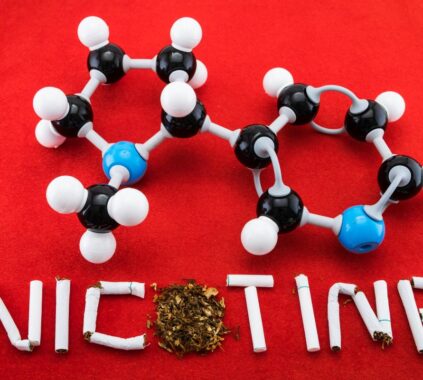In recent years, smoking stimulants has become a familiar and dangerous behavior. Stimulants are chemicals that boost brain activity, resulting in greater alertness, focus, and energy. While some people use stimulants for valid medical reasons, others do so for euphoria or increased cognitive performance. Regardless of the motivation, understanding the impacts and consequences of smoking stimulants is critical for making informed decisions regarding our health and well-being.
Stimulant Types
Stimulants include a broad spectrum of legal and illegal substances. Nicotine, coffee, amphetamines, and cocaine are examples of common motivations. Each stimulus uniquely affects the body and mind, and smoking them can amplify their effects.
Nicotine:
Nicotine, primarily found in tobacco products, is highly addictive and is one of the most extensively taken stimulants worldwide. When you smoke cigarettes, cigars, or e-cigarettes, nicotine enters your system quickly, causing an immediate sense of alertness and pleasure.
Caffeine:
Caffeine is a legal and commonly available stimulant in coffee, tea, energy drinks, and some pharmaceuticals. Caffeine is rarely smoked. However, it can be inhaled in powder form or via e-cigarettes. Immediate effects include a faster heart rate, a better mood, and better attention.
Amphetamines are stimulant medications that are synthetic and stimulate the central nervous system. They are frequently used to treat attention deficit hyperactivity disorder (ADHD) and narcolepsy. Amphetamines can be illegally smoked, snorted, or injected for euphoric effects.
Cocaine:
Cocaine is a potent illicit stimulant derived from the coca plant. Smoking cocaine, especially crack cocaine, produces a powerful and quick high, resulting in enhanced energy, confidence, and joy.
Smoking Stimulants’ Short-Term Effects
Stimulants such as smoking can have immediate impacts on the body and mind.
These effects differ based on the inspiration taken, but they generally include:
Increased heart rate:
All stimulants can cause an increase in heart rate, which is especially dangerous for people with cardiac problems or hypertension.
Elevated blood pressure:
Smoking stimulants can induce a transient increase in blood pressure, which can be dangerous for people with cardiovascular problems.
Enhanced energy and alertness:
Stimulants activate the central nervous system, improving energy and attention.
Stimulants frequently create sensations of pleasure and heightened mood, which can be addictive and lead to dependence.
Reduced appetite:
Smoking stimulants can reduce need, contributing to weight reduction in certain people.
Smoking Stimulants’ Long-Term Effects
While the short-term effects of smoking stimulants are alarming, the long-term implications can be far worse.
The following are some of the most common long-term impacts of smoking stimulants:
Addiction:
Stimulants, particularly nicotine and cocaine, are highly addictive. Tolerance, dependence, and addiction can develop due to regular smoking, making it difficult for smokers to quit.
Cardiovascular issues:
Stimulants like smoking can burden the cardiovascular system, raising the risk of heart attacks, strokes, and other cardiovascular disorders.
Respiratory issues:
Smoking any substance can harm the lungs and respiratory system, resulting in chronic bronchitis, lung infections, and other respiratory problems.
Anxiety, despair, paranoia, and even psychosis can result from long-term stimulant usage. Even after stopping smoking, these mental health difficulties may continue.
Cognitive impairment:
Long-term stimulant usage can impair memory, concentration, and decision-making ability.

Smoking Stimulant Dangers and Risks
Smoking stimulants pose substantial hazards and threats to one’s bodily and mental health.
Some of the risks are as follows:
Overdose:
Using stimulants in excessive dosages or conjunction with other substances raises the danger of overdose.
Injuries and accidents:
Stimulant usage can impair judgment and coordination, increasing the chances of an accident or injury.
Legal ramifications:
Certain stimulants, such as cocaine and illegal amphetamines, might result in legal problems and criminal prosecution.
Financial pressure:
Substance misuse can be costly, resulting in financial issues and relationship strain.
Social isolation:
Stimulant addiction can cause social disengagement and strained relationships with friends and family.
Treatment and Assistance
Overcoming stimulant addiction might be difficult, but it is doable with the correct treatment and support.
Some essential steps to take for those battling with amphetamine addiction are as follows:
Seeking professional assistance:
Seeking assistance from medical professionals or addiction specialists who can provide appropriate therapy and counseling is critical.
Attending therapy:
Behavioral therapies, such as cognitive-behavioral therapy (CBT), can help overcome addiction and address underlying issues.
Participating in support groups:
Support groups, such as Narcotics Anonymous (NA), give people in recovery a sense of community and understanding.
Developing a solid support network:
Having supportive friends and family members can make a big difference in rehabilitation.
Conclusion
Smoking stimulants can have severe consequences for one’s physical and mental health, so it’s essential to be aware of the risks. Understanding the short- and long-term impacts of smoking stimulants can help people make better decisions regarding their health. Suppose you or someone you love is battling with stimulant addiction. In that case, getting professional help and support is critical to overcome these obstacles and live a happier, more fulfilled life. Remember that asking for help is the first step towards a better future.
Last modified: November 24, 2023






